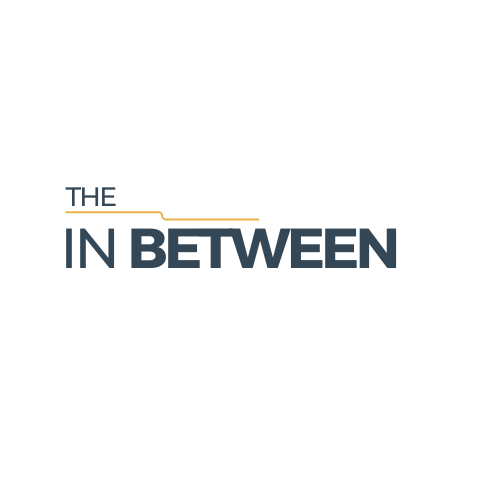Listen On:
Chris Morris
- Website: chrismorriswrites.com
- Book: Resilient and Redeemed
- Substack: chrismorriswrites.substack.com
What happens when the formulas of faith no longer hold? And how do you hold on to God—not for answers, but for presence—when you’re in the thick of mental illness, trauma, and chronic pain?
In this episode of The In-Between, I sit down with Chris Morris—author, speaker, and advocate for mental health and chronic illness in faith communities.
Chris doesn’t offer easy answers. What he offers is something better: honesty, theology shaped by experience, and a deeply personal path toward a faith that can hold grief, depression, doubt, and beauty all at once.
In this episode, we talk about:
👉 Why “Problem + Jesus = No Problem” isn’t just untrue—it’s harmful
👉 The moment Chris gave God a seven-day ultimatum—and what happened on day six
👉 What spiritual abuse can do to someone already battling depression
👉 How three simple questions became lifelines in the middle of a mental storm
👉 The gift of going second—and why vulnerability always carries risk
👉 The nuanced space between needing clinical help and seeking spiritual healing
👉 What flourishing looks like for someone still carrying hard things daily
The Wake-Up Call: When Christian Clichés Fail
Chris grew up in a home with religion but little grace. At 15, he was suicidal and unsure God even existed. He gave God an ultimatum: “You’ve got seven days or I’m ending my life.”
On day six, a neighbor girl knocked on his door and invited him to her birthday party. That invitation changed everything.
And yet—coming to faith didn’t fix everything.
I was told the Christian formula was ‘Problem + Jesus = No Problem.’ But for me, it was ‘Problem + Jesus = Chris still has a problem.’
The Cost of Poor Pastoring
When Chris hit another low point in his twenties, he reached out to a pastor for help. What he got was a lecture:
“Man up and pray more.”
“I walked out of that office in a full-blown crisis of faith. And I carried that for years. I believed him.”
What followed was a decade of spiritual self-flagellation: looking for unconfessed sin, trying to beat the devil out of himself. None of it brought healing.
The Shift: “Be Gentle to Yourself”
Eventually, Chris hit a new kind of bottom. He asked God, “Am I missing something?”
And God whispered: Be gentle to yourself.
That phrase became the turning point in Chris’s journey—toward compassion, toward unlearning, and toward building practices that could support healing over time.
Tools for Navigating Mental Storms
A wise counselor gave Chris three questions that changed his life:
🧠 What if the thing you’re afraid of isn’t going to happen?
🔍 What else could potentially be true?
🙏 What might God be doing in this moment?
These weren’t “fixes”—but they created space. Space to breathe. Space to step out from under 10,000 catastrophic thoughts. Space for God to show up differently than expected.
Faith in the Silence
How do you trust God when you can’t feel Him?
Chris offers this:
“I remind myself that God’s faithfulness doesn’t always look the way I expect. So I go back to the stories—mine and Scripture’s—where God showed up. And I ask: What if He’s here, and I just can’t perceive it yet?”
Sometimes the silence isn’t absence. It’s invitation—to curiosity, to humility, to waiting.
Risk and Relationship
Chris has cultivated a small but mighty circle of friends who show up when life falls apart. But it didn’t happen by accident. It started with vulnerability—and the risk of going first.
“I’m the guy who, when someone asks how I’m doing, says: Do you want to know? And if they say yes, I tell them. That’s how one of my best friendships began—on Twitter, over tacos, and with total honesty.”
Practical Insights from Chris’s Journey
🧩 Identity isn’t always spiritual—it’s also neurological, emotional, and formed by trauma
💊 Therapy and meds aren’t signs of spiritual weakness—they’re tools of healing
💬 Vulnerability will always involve risk—but it’s also where real connection lives
🧠 Mental illness isn’t a character flaw—and faith isn’t a guarantee against it
📖 Sometimes the most spiritual thing you can do is sit with your humanity and ask better questions
What Does Flourishing Look Like Now?
Chris’s answer isn’t flashy.
Flourishing means knowing I am loved by God, having the courage to sit in that love—and being content in that being enough.
Not achievement. Not certainty. Just belovedness.
This episode is for:
- Anyone silently struggling with mental illness inside a faith community
- Pastors and spiritual leaders who want to better understand how to care
- People deconstructing harmful theology, but still longing for God
- Those who’ve been wounded by poor pastoring—and need a path forward
- Anyone longing to believe that being loved is enough
🎧 Listen on Spotify: [Insert Spotify Link]
📺 Watch on YouTube: [Insert YouTube Link]
Everything just changed, now what?
In a season of transition, it’s hard knowing what to do next. Finding Your Way to Flourishing is your free guide to crafting your Next Step Statement so you can move forward with clarity and confidence.
